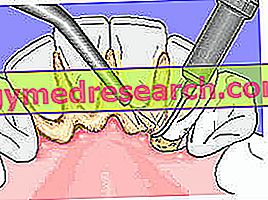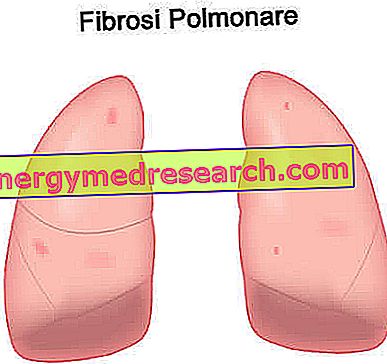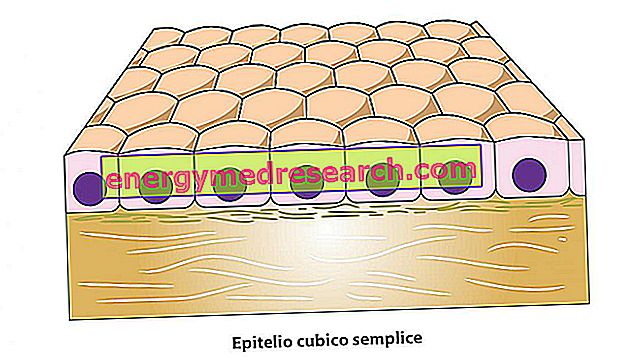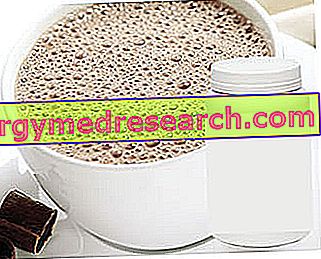Professional scaling
Professional dental cleaning is a therapeutic procedure indicated to remove stubborn plaque and tartar deposits deposited on teeth. Performed by specialized hygienists, dental cleaning is extremely important - and equally effective - to keep teeth healthy, protecting them from caries and other dental and gum diseases, such as pyorrhea and gingivitis.
- Dental cleaning, scaling, professional dental hygiene and tartar ablation are different ways of calling the same treatment

- Plaque is a sticky aggregate composed of food debris and decaying cells, bacteria and the products of their metabolism. This patina, although closely adhering to the tooth, is largely removable with the home oral hygiene procedures normally performed after each meal
- Plaque residues not removed from the toothbrush, floss and rinses undergo a process of mineralization that transforms them into a hard concretion called tartar.
Removable with normal oral hygiene tools, tartar can only be eliminated through professional dental cleaning
Benefits of dental cleaning
Professional dental cleaning is extremely advantageous because, in addition to preventing numerous dental and gum diseases, it ensures the teeth an enviable state of health even in the long term.
Let's see what are the advantages offered by dental cleaning:
- Completely removes plaque and tartar: professional dental cleaning is not limited to eliminating calculus concretions on the surface of the teeth, but it cleans deeply even pushing into the interdental spaces and in the sub-gingival area
- Prevents the formation of caries, periodontitis (pyorrhea), gingivitis, pulpits
- Makes teeth shiny
- Whitens yellow teeth
- Counteracts gum inflammation
- Reduces dentinal hypersensitivity
- Strengthens and strengthens teeth
- Prevents the formation of retracted gums (we briefly recall that the deposit of tartar in the gum collars favors gingival retraction)
- Effectively removes stains from teeth
- Prevent premature tooth loss
- Effective remedy for halitosis
Frequency
The recommended recall for professional dental cleaning is six-monthly: dental hygienists suggest scaling every 6 months or, at most, once a year. A more frequent dental cleaning (eg every 3 months) is instead recommended for patients suffering from oral diseases, especially pyorrhea, gingivitis, crooked teeth and dental malocclusion.
At least once a year, professional dental cleaning should be supported by a dental check-up: by doing so, the dentist can judge the state of dental health, surprising (possibly) a cariogenic process in the first stage at birth.
Is dental cleaning painful?
Professional dental cleaning is generally performed without anesthesia, unless otherwise indicated by the dentist or a specific request by the patient. Some people, in fact, experience extreme dentinal sensitivity, such as to make scaling a real torture.
However, in most cases, professional dental cleaning - performed on healthy teeth - is tolerated quite well by the patient even in the absence of anesthesia.
Despite being almost painless, it is not uncommon for patients to complain of more or less significant discomfort during and in the hours immediately following dental cleaning. In general, the perceived discomfort or burning is proportional to the deposit of tartar and plaque on the teeth: clearly, the more difficult are the deposits of minerals and bacteria to be eliminated, the higher the discomfort perceived during dental cleaning. Precisely in order to minimize the annoying sensation during dental cleaning, it is advisable not to let too much time pass (over 12 months) between one dental booster and another.
How is it performed?
Dental cleaning is performed in several steps:
- Removal of tartar and plaque accumulated on the surface of the teeth, in the interdental spaces and under the gum. Everything is performed by the hygienist using special pointed and sterilized instruments that, oscillating at very high frequency, fragment the calculus concretions while destroying the bacteria that constitute the plaque
- Improvement of dental cleaning with the use of steel tools with sharp points (curettes)
- Removal of stains from the teeth by applying a particular abrasive paste with a stain remover
Please note: the stain removal action performed by the abrasive substances used during dental cleaning is only applied to the outermost dental stains (the inner ones are not removed). To obtain a complete and effective tooth whitening, other whitening products must be used, undergoing a further whitening procedure (which has nothing to do with dental cleaning). For further information, read: dental whitening with laser lamps
- Teeth polishing
- Application of fluorine-containing masks to reinforce and re-mineralise tooth enamel, prevent erosion and make the teeth more resistant to bacteria attack
- (upon request) application of a special paste to prevent or minimize dentinal hypersensitivity in predisposed / affected patients
- After dental cleaning, the patient rinses his mouth thoroughly with water to remove any residual tooth paste applied by the hygienist. It is advisable to wait at least an hour before taking sugary food or drinks.
The professional tooth cleaning session also includes a specific personalized instruction program for accurate home oral hygiene. In this way, the teeth can remain healthy and shiny for a long time.
How to clean your teeth well at home (hints)
- Brush your teeth at least three times a day, possibly right after every meal or snack
- Use quality toothpastes
- Alternate whitening toothpastes (aggressive) with more delicate toothpaste to prevent tooth enamel consumption
- Use dental floss at least once a day
- Rinse the mouth with antiseptic mouthwash and enriched with fluorine
- Use a soft or electric bristle brush if possible
The putting into practice of these simple tricks every day (and several times a day) allows to enhance the therapeutic effect exercised by professional dental cleaning: taking care of one's teeth is a guarantee to prevent tooth decay and other disorders of the oral cavity.
Is dental cleaning expensive?
The cost is always set by the dentist and generally ranges from € 50 to € 100. Given the extraordinary advantages it offers, dental cleaning is not a particularly expensive procedure.



